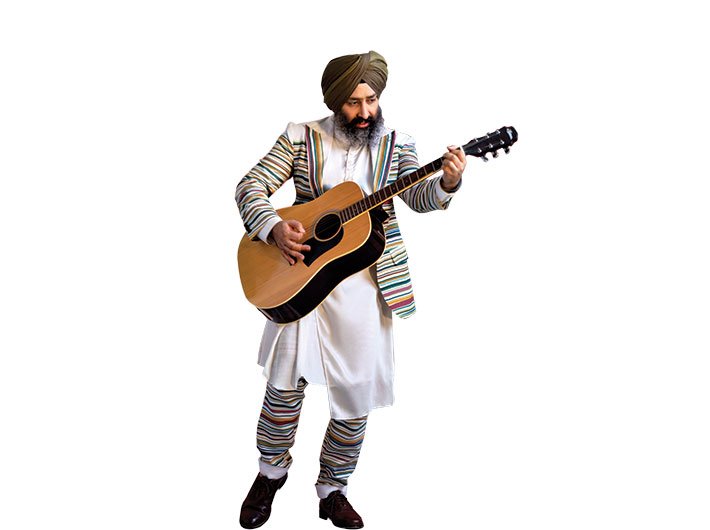Shergill rose to fame in 2004 with his chartbuster song ‘Bullah Ki Jaana.’ He talks about the music industry and the significance of Punjabi music
Punjabi singer, songwriter, and guitarist, Rabbi Shergill rose to fame in 2004 with his chartbuster song ‘Bullah Ki Jaana’ from his debut album ‘Rabbi’. Inspired by rock and Punjabi folk music, he uses Punjabi language to create acoustic rock-based ballads. His poetic and socially relevant lyrics instantly connected with an urban crowd who loved him for his genuine and original approach to his songs. His songs are deeply philosophical, blend ancient and forgotten Punjabi phrases into contemporary Indian rock music. He has also worked with award-winning mix engineer Gustavo Celis for some tracks in his third album titled ‘III’.
If not a musician: Writer.
How has digitisation affected the music industry? Profoundly. New classes of intermediary platforms like YouTube have sprung up and have got an unhealthy stranglehold on the audience. Music has been reduced to a line of code, an algorithm. Fidelity too has come down significantly from the CD era and WAV format to the present mp3/mp4. Gone are the tactile qualities of holding a physical recording, the romance of reading credits, lyrics, and liner notes. Overall, coldness has descended on the music business.
What are the challenges and opportunities for independent artists in the music industry today? Foremost is to be an authentic artiste rooted in a place, here and now. Torrents of suggestions are streaming right now from the west – impeding, interfering and manipulating an organic Indian creative expression. Then there’s the problem of linguistic regression across India. Most Indian cultures have voluntarily dismantled their own languages, which were the primary connections between the people. As the words become less sophisticated, so do our songs and consequently our appreciation of life. Then there’s the formidable intellectual mountain of grasping intricacies of algorithms, OTT platforms, IPR, contracts, etc. Historically, art found a mutually connected mass of people to address but today it’s cursed to negotiate a disconnected and nuclearised assortment of people. Heretofore, art holds up a moral, aesthetic compass but, today, it has lost itself.
Your views about contemporary Punjabi music: It resembles a bodybuilder fed on steroids – very robust on the outside and failing organs on the inside. It’s got the same 30 melodies playing on a loop, same regressive subject matter – objectified women, casteist pride and empty exhortations to Punjabiyat. It’s either screechy or preachy. But to its credit, it has acquired size and muscle.
What can the government do to preserve and promote the literary and cultural heritage of Punjabi music and poetry? Stop meddling with language. Weed out forcible inclusions into it. Instruct students, secondary school onwards, into historical Punjab aesthetics – the architecture, culture and anthropology of Harappa, Taxila, et al. Farid, Nanak, Waris Shah, Sultan Bahu, Bulleh Shah, Hashim, Puran Singh, Shiv Batalvi and Harbhajan Singh, reserve bandwidth for folk and classical music. Set up of FTII’s reward cultural excellence, hold zero-carbon open-air arts festivals. There’s plenty it can do.
Major challenges India is facing today? The way I see it, the greatest challenge is how to secure its integrity, deliver its citizens from stricture, and raise their quality of life without obliterating nature. Be nice if we might, avoid etching deeper the old lines of religion, caste, elites, and entitlement.
How does the social and political climate in the country affect your creative expression? A great deal. I’m deeply connected to everything happening around and so is my art.
Your greatest inspiration: Fabric of life. The interconnectedness of everything.
Your favourite pastime: These days it’s Netflix.
At present, you are busy with: A slew of my own releases.
Your advice to aspiring singers: Form a connection with the text. Become lovers of poetry.
– As told to Geetanjali Minhas
(This interview appears in the February 28, 2019 edition)

